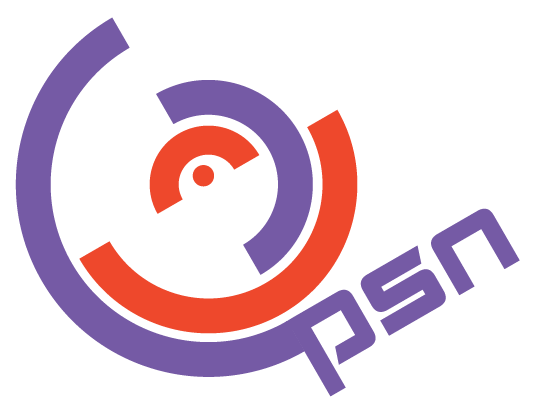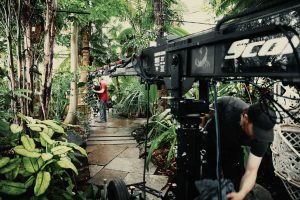At the meeting of East and West in Turkey there is an exotic familiarity that inspires creatives. With experience bridging from Paris to Istanbul, PSN Turkey Partner Chad Ozturk offers an insightful perspective on shooting in his homeland.
Q: Why do you think foreign producers choose to shoot a project in Turkey?
A: Our vast homeland showcases unique as well as diverse locations. Turkey’s position as a bridge between East and West is reflected in locations ranging from Middle-Eastern to European ambiences. There are very nice beaches in the west and south to contrast dense green forests in the mountainous north east which look like the Alps. Greek & Roman ruins dot the country, vestiges of an imperial past reflected in the diverse range of local casting options. All this for a very cost-effective price with efficient, top-notch crews.
Q: What stand-out places do you think could serve as interesting storytelling ingredients?
A: Istanbul is a singularly outstanding city. Being the only city in the world sitting on two continents makes it very special. There’s a vibrant energy, a certain magic that unfolds in the streets that draw millions of visitors each year. The thermal pools of Pamukkale, rich with minerals that have spilled over to form “cotton castles” on the mountainside, bear a descriptive name in Turkish. The underground cities, churches, and tunnels of Capadoccia are otherworldly. Vestiges of the legendary Silk Route stand in colorful testament to this land’s heritage at the crossroads of cultures. Snow skiing and Mediterranean bathing are only an hour’s drive distance in the south.
Q: Is Turkey safe and secure?
A: That’s a tricky question in a world where many big cities live in a state of alarm under threat. When I consider attacks that have occurred in Paris, Brussels, Orlando, Nice, Madrid, and London, or other places like Thailand and Indonesia, I think, “Wow, better to stay at home”. Istanbul is as safe as any other city in the world. But as I tell our clients, you can never know where the next bad thing will happen. If you were to ask a French producer 1 year ago, he would say Nice is the safest place on Earth. Even after the tragic events at Ataturk airport, I can say that our security and police forces acted with bravery and speed to neutralize 3 attackers with expedience in order to avoid a bigger tragedy.
And as for the recent coup attempt, I’m pleased to report that we’ve been living our lives normally since. There was a state of emergency, but it didn’t affect our everyday lives. The only limitation for film crews was the temporary grounding of drone flights. But we’re now fully operational once again.
Q: How well does everyone speak English in Turkey? Is it limited to select department heads?
A: Most of the crew speak English or at least understand it. All of the department heads working with visiting crew speak English. Some may also speak another language like French or German. As for the general population, the young folks are better than their parents. But fluency in English is not as common as a basic level.
Q: What strengths do you have in local crew? Does a DOP need to travel in, or do you have great ones with reels to present?
A: We have very good crews in almost every department. Big franchises like James Bond’s Skyfall and Luc Besson’s Taken have both shot in Turkey. Another great film shot here was Argo. Many Bollywood blockbusters and many European TV Series have shot episodes in Istanbul using local crews. We have a few very good DoPs who have worked with renowned directors; but if the client wants to bring in a DoP, we’re happy to provide all the camera department support needed from operators and focus pullers to camera assistants.
Q: What about the equipment?
A: No shortage there either. Local rental houses have all the latest cameras, anamorphic lenses, and a Mini Russian Arm.
Q: What are the strong and weak points of casting in Turkey?
A: We have a wide array of ethnic diversity when it comes to European and Central Asian looks like Caucasian, Middle Eastern, and Mediterranean. The African and East Asian talent pool is shallow, less than in Western and Central Europe, but we are frequently in touch with several casting agencies in Europe and in Israel to fill the gap. Increasingly, there are also more expats and foreign students who come to live to Istanbul, and they can be a good source for international looks.
Q: Does Turkey have any tricky production requisites we need to know about?
A: The procedure is straight-forward. There is first a general film permit to be attained from the Cinema Office. You have to fill in some forms, and it is a local production company that applies in your name. It’s recommended and much better to apply 10 days before the planned shoot date.
With this permit in the hand from the Cinema Office, the local service production company can then apply for all local filming permits. There are no limits to fly in crew, and no extra permits are required for up-to-90-days work, since the names of all foreign crew are already government-approved through the Cinema Office permit.
Q: What is the best season to shoot in Turkey?
A: Anytime, really, as it all depends on what you’re looking for. Evidently, if you’re seeking fair weather, the ideal time is from beginning of April ‘til mid-October. Turkey has four seasons, and each is beautiful in its own way.
Q: Does Turkey have ample studio space? How about back lots?
A: There is a very big TV series industry in Turkey that has seen the build of big standing sets and back-lots. These are sometimes used for feature films and TVCs. Comparatively speaking, though, as a country more known for its actual locations, our studio culture can’t compare to that of Bulgaria, Romania, Hungary, or Czech Republic.
Q: What local delicacies will visitors not want to miss during their stay in your Turkey?
A: Turkish cuisine is one the best-kept secrets. I’ve yet to hear a single soul saying that they didn’t like our food. From savory meat kebabs, olive oil-based appetizers and mezzes (small tapas kind of dishes to share) to exquisite pastries. And you can enjoy much of it right on the street! A great local food blog to check out is IstanbulEats. If you prefer international food, there are plenty of western-style restaurants in any of our larger cities.
Q: How about traditions?
A: We are passionate about our traditions. It is helpful to be mindful of this when planning and executing a shoot. For example, it’s obligatory to cover your head and shoulders while you enter a religious place and better to not wear shorts. Silence is to be respected.
The one-month fast and feast of Ramadan does not slow down big city life. The Turkish people each choose to live it in their own way, and it doesn’t impact the opening hours of shops or restaurants. Only in small towns would restaurants more likely be closed until dinner time.
Our national identity is integral to our flag, so better to not disrespect it.
In general, we are a very open culture of trade and commerce. So producers bringing their projects to Turkey can count on our every effort to ensure a successful shoot.
Chad Ozturk
Chad started his career in Paris as a runner on music videos and TVCs for companies such as Soixan7e Quin5e, Irene, El Nino, Iconoclast, and Players Paris, working with directors like Romain Gavras, Megaforce, Jeremie Rozan, François Rousselet, So Me and NAN. He worked his way up to producer before moving back home to Turkey, where he line produces foreign productions shooting in his homeland.
Since his return, Chad has service produced projects for brands like Apple, Netflix, Piaget Jewelry, Eurosport, Fiat, TUI, and China’s TCL. He has also ensured a smooth local production in Turkey for Norway’s hit TV series Mammon and TV8 Malaysia’s TV show Hip-Hopin’ Asia.
Chad is the founding partner and EP of the PSN Turkey shop while also producing commercial films for the domestic market.





